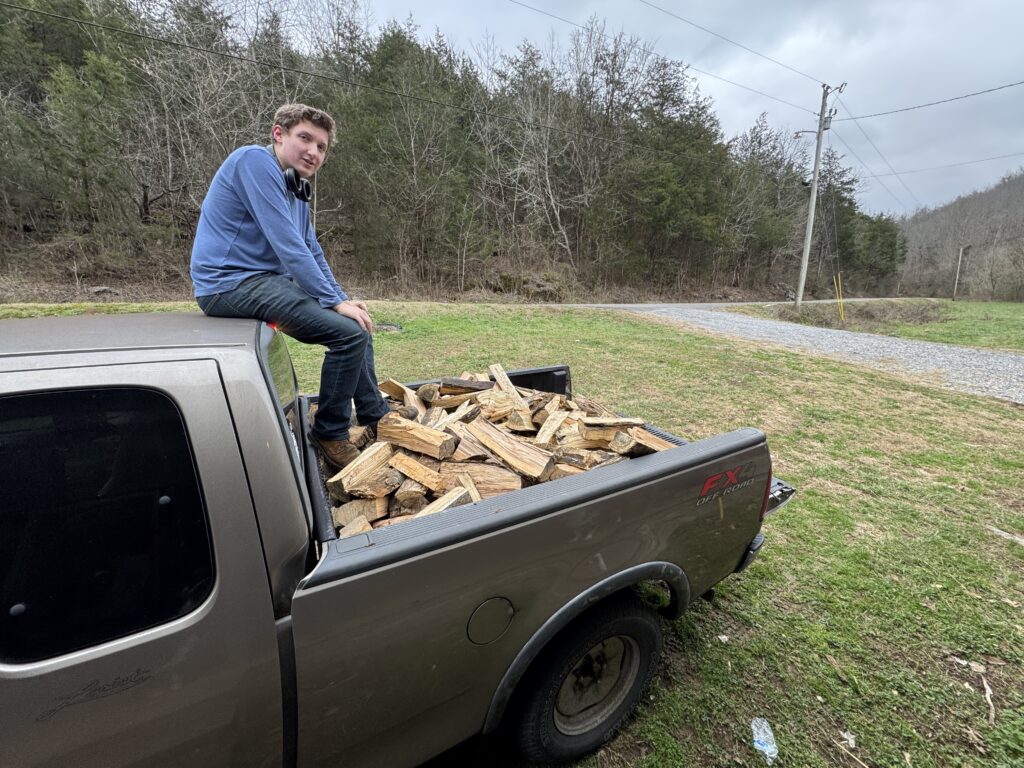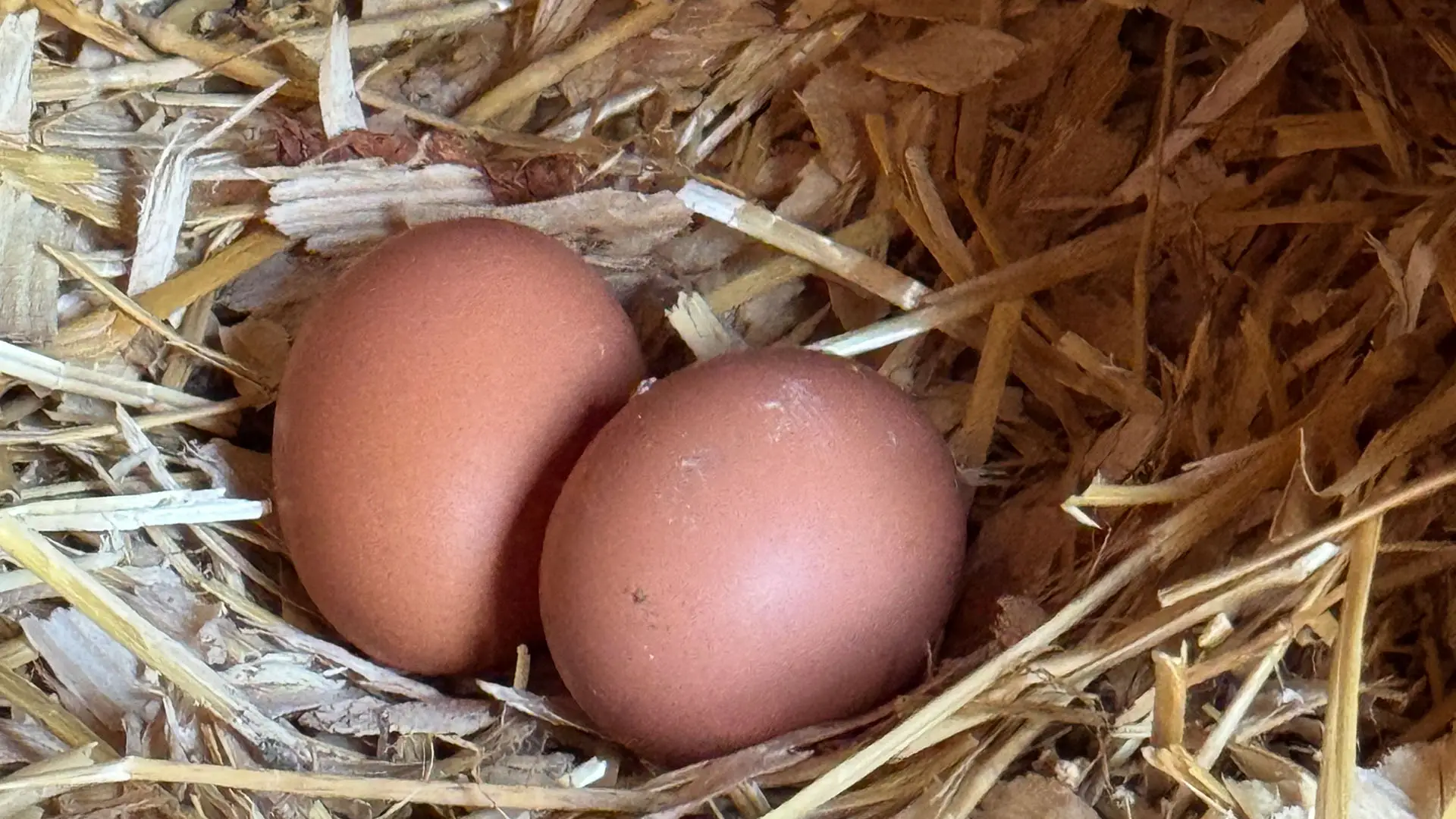As the Arctic cold air prepares to settle in, many households scramble to ensure their homes are warm and cozy. On our homestead, we rely on firewood to supplement the heating in our home, and it’s a choice that has proven invaluable time and time again. In this blog post, we’ll explore the benefits of supplementing heat with firewood, including its availability on the property, cost savings, and unmatched reliability, especially during power outages.

Embracing the Resources on Our Land
One of the greatest advantages of living on a homestead is the abundance of natural resources. Our property provides a steady supply of fallen timber and standing deadwood, ensuring we have access to firewood without needing to cut down healthy trees. By responsibly harvesting this wood, we’re not only making use of what nature provides but also contributing to forest health by clearing debris that could become a fire hazard.
Processing the wood—cutting it into rounds, splitting it, and stacking it to dry—takes time and effort, but it’s a labor we’re grateful for. This connection to the land reinforces the value of self-sufficiency and resourcefulness that homesteading embodies.
Saving Money on Heating Costs
Electric heating can be one of the most significant expenses during the winter months. By supplementing our home’s heating with firewood, we drastically reduce our reliance on electric heat, which leads to substantial savings. The cost of a splitting maul or chainsaw is minimal compared to monthly heating bills, and since our firewood is sourced directly from the property, the financial burden is even lighter.
In addition to the upfront savings, using firewood as a supplementary heat source reduces wear and tear on electric heating systems. This can lead to lower maintenance costs and a longer lifespan for those systems when they are used less frequently.
Reliable Heat During Power Outages
Winter storms often bring power outages, leaving many families in the cold. Supplementing our heat with firewood ensures our home stays warm, even when the grid goes down. This peace of mind is priceless during extreme weather events when staying warm is not just a matter of comfort but survival.
A wood-burning stove or fireplace doesn’t rely on electricity to function, which means it’s always ready to provide heat. Knowing that we have a dependable and sustainable heat source is one of the greatest benefits of our firewood system.
Building a Legacy of Self-Sufficiency
Beyond the practical advantages, supplementing heat with firewood is a lifestyle choice that reinforces values of independence, resilience, and sustainability. It’s a hands-on way to care for our family and our land, teaching valuable lessons about preparation and hard work.
While it takes effort to process and manage firewood, the rewards far outweigh the challenges. The physical activity keeps us active, the routine brings a sense of accomplishment, and the warmth of a wood fire creates a comforting atmosphere that electric heat simply can’t replicate.
Final Thoughts
Supplementing your home heating with firewood is more than a practical decision; it’s a commitment to a sustainable and reliable way of living. By utilizing the fallen timber on our property, reducing heating costs, and ensuring we have a dependable heat source during power outages, we’re not just staying warm—we’re embracing the full potential of what our homestead has to offer.
If you’re considering a similar approach, remember that preparation and planning are key. Start small, learn as you go, and enjoy the rewards of a warm and resilient home. For more insights and homesteading adventures, check out our latest video:
Stay warm, friends, and happy homesteading!



